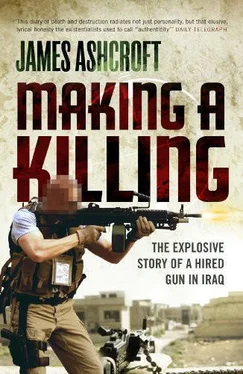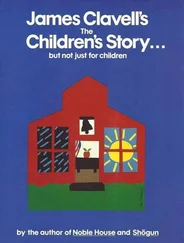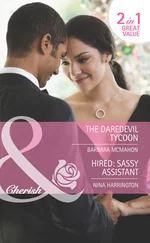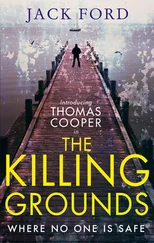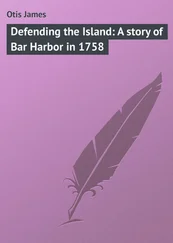I suggested quietly to the sergeant that they should lift the love-lost boy and take him back to the patrol base for half an hour and then allow the policeman to come and pick him up. That way, the youth would have a nasty shock and to the family and neighbours it would appear that the policeman had used his influence to rescue their son. ‘Hearts and minds,’ I whispered and the sergeant pushed his helmet back from his brow. ‘Yeah, that one,’ he replied.
The 1st Cav troopers appeared bemused by the whole situation and I told them that probably half the bodies they found every morning from the night’s fighting came from similar feuds unconnected with the occupation.
With that sorted we disappeared back into the house to clear up. Tonight was film night and we were going to watch American Pie 3: The Wedding . Colonel Faisal and Sammy had loved the first two films in the series.
After finding himself a local hero, the policeman decided that placing a couple of dogs in the garden would serve as an early warning in case of future domestic disputes. But his mad kids spent most of the day throwing rocks at the dogs so most nights it took them until well past midnight to settle down again. We learned to sleep through it. It was an improvement on the day that the policeman had purchased a car alarm and the entire family would line up in the evenings and take it in turns to set the alarm off as a form of family entertainment.
The insurgents for their few successes had suffered terrible losses every time they tried to shoot it out with Coalition Forces or contractors and would now fall back on more traditional guerrilla tactics. Together with the CF and, sadly, the general Iraqi population, we would now face danger from increased rocket and mortar bombardment, and from the biggest killer of all, improvised explosive devices, IEDs.
Before the US invasion of Iraq, Saddam Hussein knew that a stand-up fight with the technologically superior Americans could only end in defeat and had activated a widespread training programme at guerrilla warfare centres. Even if Iraq was not prepared for an all-out war, it was prepared for an insurgency.
After the war, ex-Iraqi soldiers immediately armed themselves with weapons they had cached all over the country, and there were more than a hundred major arsenals and ammunition dumps left unsecured by the victorious Coalition. Not only the old Republican Guards and the Fedayeen Saddam, but anyone with a donkey cart was able to arm up with thousands of tons of weapons and ammunition. Many simply sold the weapons on the black market to private military contractors like ourselves who had come to combat their activities.
The insurgents couldn’t risk deploying artillery pieces in the field and set about converting their vast stores of high-explosive shells into IEDs, usually wiring them up to a small piece of plastic explosive. They had lacked expertise in the early months, but the rebels learned quickly and were getting plenty of practice putting Coalition Forces, private security firms and the civilian population under constant attack from VBIEDs and roadside bombs.
Convoys were now running into complex ambushes where the killing area stretched for up to two kilometres and essential goods were being blown up or robbed. If the cooking gas, heating oil, electricity or the precious benzene ran out, the people of Baghdad kicked up a fuss. If the flow of drinking water was interrupted they went incandescent with rage. They knew the consequences of an outbreak of cholera and typhoid. As the Water Boys we had the support of the people in Aradisah Idah and when they found an IED they let us know about it.
The security market worldwide was now worth $100 billion a year, and while Adam Pascoe was in Washington trying to get a bigger slice of the market, Angus McGrath was the in-country manager.
There were several stakeholder organisations with the power to hand out contracts including the Iraq Reconstruction Management Office (IRMO), Iraq Project and Contracting Office (PCO), United States Agency for International Development (USAID), the Corps of Engineers Gulf Region Division (GRD), the Ministry of Municipalities and Public Works (MMPW), the Ministry of Water Resources (MWR), the Amanat of Baghdad and a handful of charities.
Overall security strategy for water resources was still unco-ordinated and haphazard. Two water engineers, one Dutch and one German, together with two of their Iraqi police escorts, had been killed on the Hilla Road, near Karbala, a dodgy area where a Western PSD team wasn’t just desirable but essential. Having said that, I knew of small engineering sites operated by Fluor where one security company had the contract to protect the site with Iraqi guards; another firm had the contract to actually bodyguard the engineers; and yet a third had the contract to PSD them back and forth on the highways.
Angus was hoping that a recent double win in March by Amec, a British company partnered up with Fluor, for reconstruction contracts in the power and water sectors worth $1.6 billion would be an opportunity for us to gain more contracts. In the meantime, our team in Aradisah Idah was concentrating on not getting walloped.
About a hundred days after the death of Jacko Jackson and the maiming of Steve Campbell Spartan HQ had taken delivery of several armoured vehicles and had issued us with a BMW saloon car and a GMC 4 × 4 SUV. Both vehicles were armoured to B6 standard, i.e. up to 7.62mm rifle or machine-gun fire. We’d heard from other teams that after a couple of bursts from a machine gun, rounds would start to penetrate, especially through the windows and at the joins. They were excellent protection from IEDs and shrapnel, however.
Next day, Seamus accidentally discovered another disadvantage. He rolled the GMC on to its side doing J-turns out by the range. Dai and Hendriks were inside the cab with him and even with their combined strength they were unable to push the door open; it weighed about 200lb and was now horizontally above their heads. The passenger compartment was completely armoured and cut off from the boot, unlike in most designs I’d seen, so there was no way out at the rear. Cobus and I had to clamber on the side of the GMC, open the side door and drag the guys out. Not something you wanted to do in a contact, assuming that the other team members had survived.
There were a number of other disadvantages, the first being that you cannot shoot out of an armoured vehicle. You have to de-bus first, and then shoot. So in any contact we would have to rely solely on the roads being sufficiently clear to drive out of the killing area before the armour started to fail, a period measured in seconds. On the highway this might be possible maybe, but the jammed roads of Baghdad were unlikely to allow us that luxury. Also there was the problem with profile. The BMW was fine, there were plenty of those on the road, but the GMC was huge, obviously American and stood out like a sore thumb among the locally used Japanese and Korean models. The bad guys would be able to identify us from a long way out.
Currently we were operating a semi-covert profile. We would take two cars at all times for mutual support, but unlike standard PSD drills, we blended in with the traffic with two vehicles no longer trying to stay together as if attached by an invisible rope. We just moved in the same general direction keeping in touch with radio comms. We did not go as far as some other teams and dress up as locals, but we did have tinted windows on the side and rear. The windscreens we kept clear so that we could display flags as we approached CF patrols or bases.
There were dozens of American PSD packets moving around with pairs or trios of identical vehicles, driving in a distinctive manner, carrying massive HF antennas and bristling with guns. They were doing themselves an enormous disservice by creating 100-metre exclusion zones around their convoys. The rear gunners would shoot up the road in front of the traffic behind to ensure that no one got close enough to detonate a vehicle-borne IED, never mind the poor farmer on his donkey cart who takes a ricochet, never mind hearts and minds. These packets often had big signs on the back of their CAT trucks telling people to keep their distance in Arabic, although by now everyone in Baghdad knew that if you were coming up behind a CF patrol or a PSD convoy, you stayed away or you got shot.
Читать дальше
